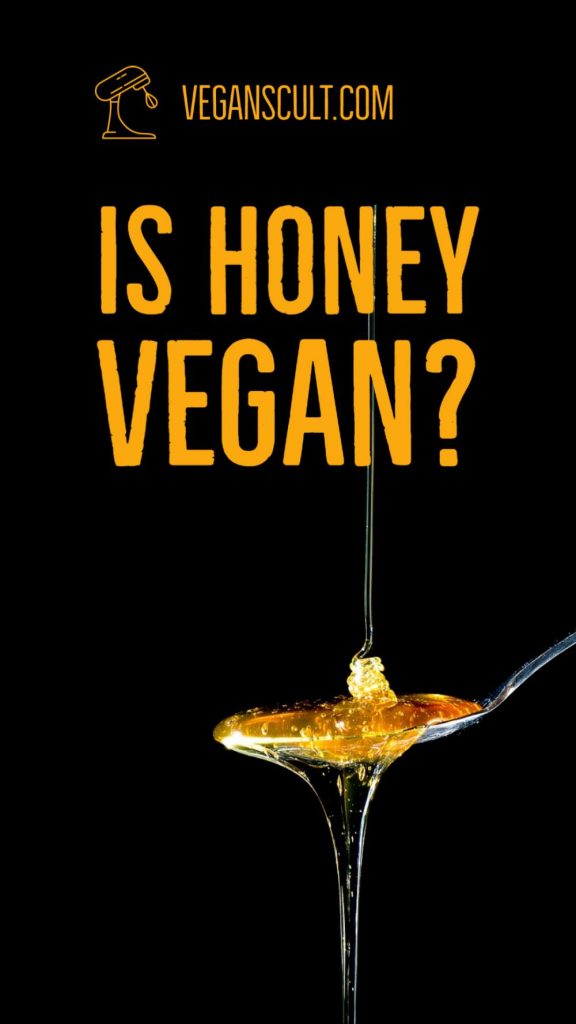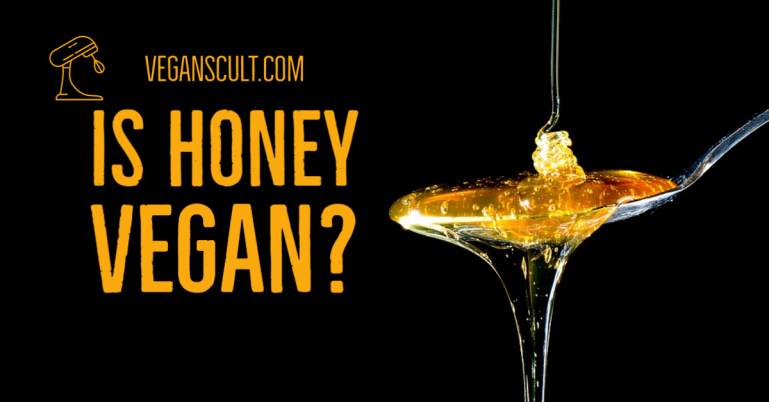
Summary- Is honey vegan?
Honey is neither vegan nor cruelty-free unless it is made artificially without the involvement of bees directly or indirectly. Bees are exploited for the extraction of honey and they have to suffer just for the taste of humans. Honey is made by the bees for the bees and not for humans. So, honey is considered to be an animal-derived product and is not vegan.
Honey and Veganism
Many people incorporate honey into their daily diet. Why is that so?
It’s because of the numerous benefits of honey. Many people have a sweet tooth, and they use honey to satisfy their cravings.
Moreover, many dishes and sauces use honey to enhance the taste.
Besides, honey can have plenty of health benefits. It can provide antioxidants that protect our bodies from cell damage.
Also, certain types of honey aid in healing wounds and regenerate tissue. Most commonly, people use it to treat throat infections. They use hot tea and lime to counter their throat issues problem.
Therefore, all of these facts show that honey can be a beneficial Healthy food source.
Besides all of these facts, the vegan community is reluctant to include honey in their diet because they believe it is not vegan-friendly.
See below, the trend of the term “is honey vegan” has increased manifold over time :-
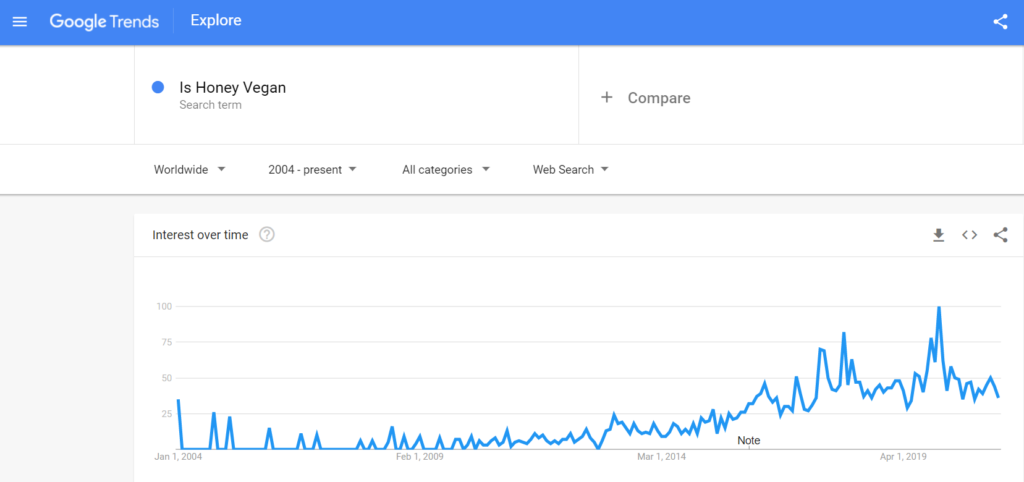
Veganism involves avoiding all the food and products that are animal-derived or involve any kind of animal testing.
The vegan community believes that honey manufacturing involves using bees’ help; therefore, they classify it as non-vegan friendly.
We’ll analyze this issue in depth further in the article.
Why is honey not vegan-friendly?
Honey and its relationship with veganism is a very broadly discussed topic.
To simply answer the question, Vegan considers honey non-vegan-friendly.
Honey is a thick, golden liquid, and it’s a primary source of nutrition for bees.
Bees primarily make them and store them for cold months when few flowering plants are there to collect nectar from.
How do bees make honey?
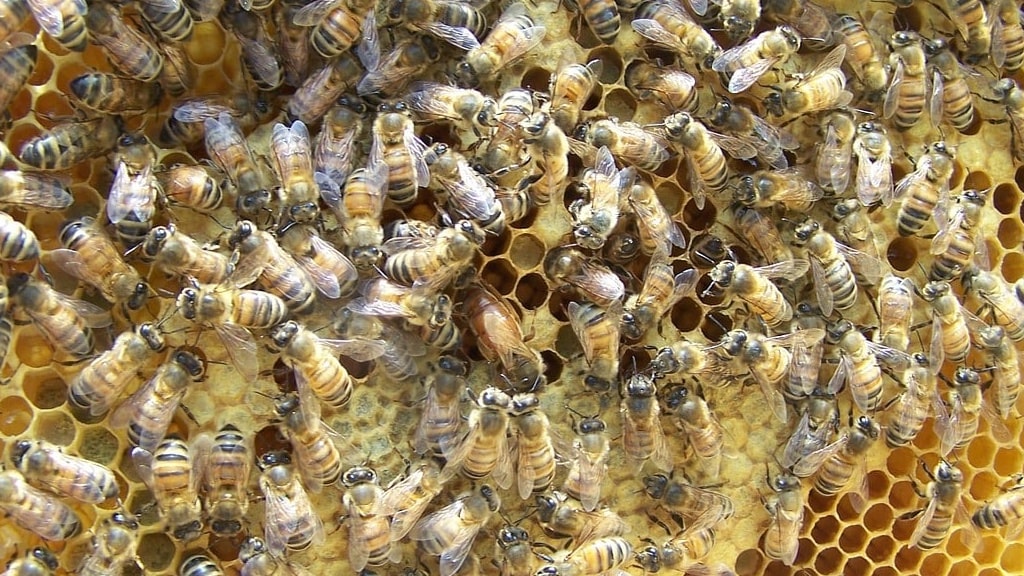
Honeybees do a lot of hard work to make honey. Honey bees leave their hives to extract nectar, which is the main source of honey.
Nectar comes from flowering plants, and bees extract them using their long tongue and stores them in their honey stomach.
Yes, you heard that right! Bees have two stomachs: the main stomach and a honey stomach. When their honey stomach is full, it weighs as much as the bee.
Once it’s full, bees return to their hive, and while returning, they secrete enzymes that transform the nectar for more suitable storage.
Once the bee returns to the hive, it’ll pass the honey content to the house bee, further breaking down the nectar into simple sugar.
Afterward, the content is stored in a beeswax cell, and the bees dehumidify the content using their wings.
This process removes moisture from the nectar and transforms it into syrup honey. Finally, the bees seal the cell with wax.
So, is Honey Vegan?
As evident from the above honey-making process, we can see that it involves a lot of hard work. Also, each bee produces just a twelfth teaspoon of honey in their lifetime, which signifies their intense hard work in making honey.
Therefore, according to the veganism definition, honey is non-vegan friendly. People believe that bees make honey for humans, but the reality is that they make it for their own.
Veganism is a way that reduces the cruelty and exploitation of animals.
As a result, many vegans avoid eating honey because they believe commercial bee-farming compromises bees’ health.
The main function of honey is to provide bees with carbohydrates and other important nutrients.
Beekeepers take honey and replace it with sucrose syrup.
Read also : Are skittles vegan? Should you “Taste the Rainbow”?
Sucrose syrup aims to prevent bees from starving during the cold winter. However, these replacements don’t provide the bees with replacements nutrients, and research also suggests that it can compromise the bees’ immune system and genetics.
Therefore, it’s one reason why vegans are against eating honey.
Another reason why it’s not vegan friendly is that many honey farmers use unethical practices.
Sometimes, farmers breed honey bees to increase production. However, it can increase diseases and many bees’ deaths.
Sometimes, farmers use unethical practices like clipping a queen bee’s wings to avoid it shifting its colony. In this way, they can increase production and profit.
Due to the practices mentioned above, vegans regard honey as non-vegan because it potentially harms the bees and hurts their environment.
Vegans stand against these unethical practices by avoiding bee products, including honey, pollen, etc.
Manuka Honey? Is it Vegan?
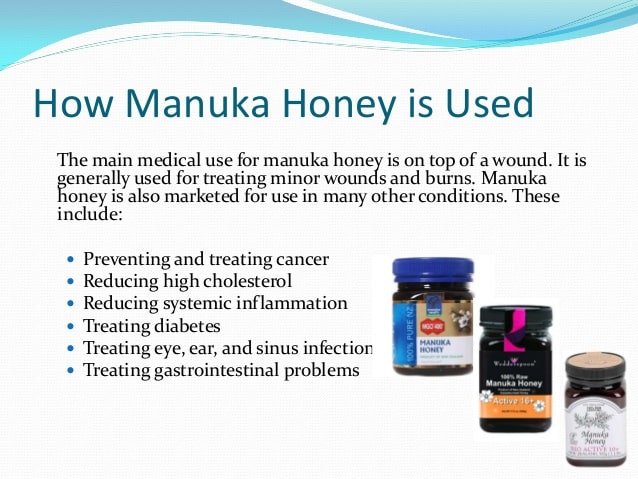
There are many different types of honey, including manuka, clover, avocado, aster, and acacia honey. As we see above, extracting honey is the same for all kinds of honey.
Among these honey, manuka honey originates from New Zealand and has a wide application in skin treatments.
The bees collect the nectar from the Manuka bush, hence name Manuka honey.
However, it’s no unique honey, and extracting process is the same. Therefore, it’s no vegan-friendly.
While it’s quite a useful honey, but with the same extraction process, and bees doing all the work, if we follow the Vegan’s perspective of taking care of the bees, it is not vegan-friendly.
Fortunately, there are some sustainable organic solutions for vegan individuals. There are several different types of beekeeping.
Balanced beekeeping is a process where excess honey is taken from the hives. Likewise, natural beekeeping is another type that only keepers leave the hives and let the process be natural.
Therefore, it doesn’t involve harm to the bees, and the solutions are kept organic at best.
Vegan Alternatives for Honey
Whether you consume honey from organic beekeepers or not, the decision is totally up to you. However, if you like honey, but can’t consume it, then you don’t have to worry. We have some organic alternatives of honey that will satisfy your needs in the same way honey does.
It comes from the maple tree, and it contains plenty of nutrients and antioxidants. It doesn’t taste like honey, but it works amazingly in many recipes. Check out the price here.
Sorghum syrup:
It’s a very interesting crop that many manufacturers use as an alternative to corn to make biofuels. Moreover, it’s also useful in the kitchen and tastes similar to honey. You can use it as an alternative to honey for various recipes.
Brown rice syrup is the most common alternative to honey. Manufacturers make it by exposing brown rice to enzymes that break down the starch to give a dark-colored liquid. Also, it’s less sweet than honey, but it works well in recipes, sauces, etc. Check out the price here.
This short documentory will clear things up!
If you like the article, please share it with your friends or pin this image on Pinterest:
